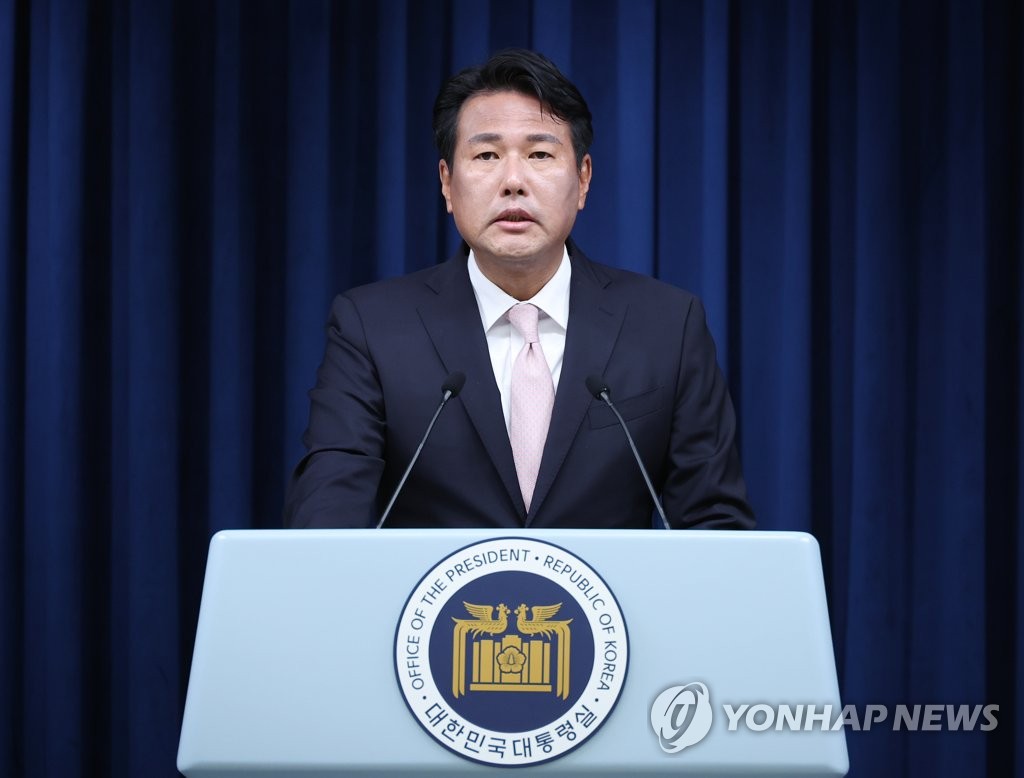- California Assembly OKs highest minimum wage in nation
- S. Korea unveils first graphic cigarette warnings
- US joins with South Korea, Japan in bid to deter North Korea
- LPGA golfer Chun In-gee finally back in action
- S. Korea won’t be top seed in final World Cup qualification round
- US men’s soccer misses 2nd straight Olympics
- US back on track in qualifying with 4-0 win over Guatemala
- High-intensity workout injuries spawn cottage industry
- CDC expands range of Zika mosquitoes into parts of Northeast
- Who knew? ‘The Walking Dead’ is helping families connect
Yoon gov’t unveils National Security Strategy highlighting N.K. threat
The Yoon Suk Yeol administration on Wednesday unveiled a National Security Strategy highlighting the threat of North Korea’s nuclear and missile programs and outlining its objectives for the realization of a “global pivotal state.”
The Office of National Security under the presidential office published the strategy in a booklet — 107 pages in Korean and 150 pages in English — to present the administration’s policies for foreign affairs, unification and defense in the context of a rapidly changing security environment marked by North Korea’s advancing nuclear capabilities, the intensifying strategic competition between the United States and China, and emerging security issues, such as supply chain anxieties and climate change.

“We find ourselves at a critical inflection point in history once again,” Yoon wrote in the preface, citing an unprecedentedly turbulent future that breaks from the stability and prosperity experienced by the world over the past half century.
“Clashes of values, ideas, and interests around the globe are shaking the existing world order anchored in rules and principles,” he said, noting the rise of transnational threats, such as infectious diseases, climate change, and food and energy crises.
“In light of these challenges, the concept of national security can no longer be limited to the prevention of external threats and invasions,” he said.
Yoon said the key to the country’s future lies in developing a national security strategy that anticipates approaching changes and maximizes the interests of the nation and its people.
“We will continue to develop our military into a strong and technologically advanced force, thereby creating a solid foundation of security,” he wrote. “Our goal is to foster a sustainable peace that guarantees freedom and prosperity on the Korean Peninsula and in Northeast Asia, as opposed to a fragile and short-lived peace that merely postpones war.”
He added that South Korea will spearhead efforts to overcome global challenges, such as disease, famine, poverty, illiteracy, the digital divide and environmental pollution, and strive to expand its contribution to the international community.
The strategy identified North Korea’s continued advancement of its nuclear and other weapons of mass destruction capabilities as the most pressing security challenge facing South Korea.
“It is more critical than ever to strengthen our military’s defense capabilities and reinforce a robust ROK-U.S. combined defense posture,” it said, referring to South Korea by the acronym of its formal name, the Republic of Korea.
The strategy also pointed to a “compelling need” to transform the deteriorated South Korea-Japan relationship into a forward-looking, cooperative partnership as trilateral security cooperation among South Korea, the U.S. and Japan becomes increasingly important to counter North Korea’s nuclear and missile threats.








![일본 사도광산 [서경덕 교수 제공. 재판매 및 DB 금지]](http://www.koreatimesus.com/wp-content/uploads/2024/07/PYH2024072610800050400_P4-copy-120x134.jpg)


